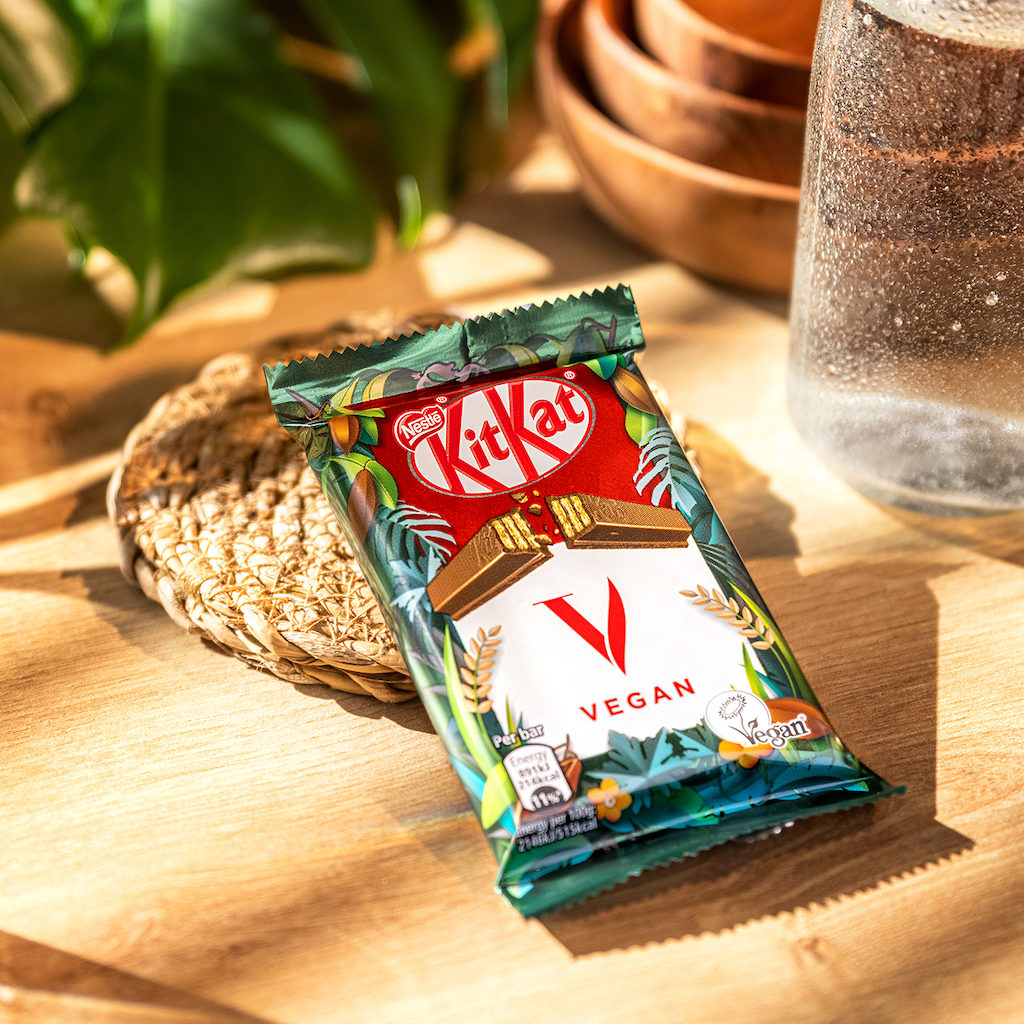3 Mins Read
The vegan chocolate market is experiencing a 12.3 percent CAGR, expected to reach $1 billion in global sales by 2027.
In the last two years, leading chocolate brands including Hershey’s and Cadbury’s have launched vegan chocolate bars as consumers continue to seek out dairy-free options for health, environmental, and ethical reasons. And according to a new report, it’s a sign of things to come as the vegan chocolate market should reach $1 billion in sales globally by 2027.
Cadbury’s made the announcement nearly two years ago that it was launching vegan chocolate.
“We’re always listening to our customers so we can develop and provide people with greater choice. This includes looking at a plant-based Cadbury Dairy Milk bar,” a Mondelez spokesperson said at the time.
Last summer, Nestlé followed suit, launching vegan versions of KitKat bars in the U.K. The U.S.-based confectionery leader, Hershey’s, announced the launch of its oat milk bars later last year.
Shifting consumer habits
“Millennials and the working population are highly adopting the vegan culture, which is estimated to surge the demand for [vegan chocolate], reads the report. Data continue to show that consumers are not only seeking out sustainable and healthier options, but they’re willing to pay a premium for products that are responsibly sourced and sustainable.

Consumers are also shifting away from dairy for health reasons; an estimated 65 percent of people suffer from lactose intolerance. In some Asian demographics it can be as high as 100 percent, according to a 2017 study published in the journal The Lancent Gastroenterology and Hepatology.
The report also notes that the pandemic altered consumer shopping patterns. “They are preferring to store up products that give nutrition and energy, having private-label, and are inexpensive.”
Based on Type, the market is segmented into Milk Chocolate, Dark Chocolate and White Chocolate. Milk segment acquired the maximum revenue share of the global vegan chocolate confectionary market in 2020. Top companies are now introducing their famous chocolate confectionery in the vegan chocolate category. This plan of action will help the company to get appreciation from customers over the world and will also result in the rise of the product sale.
The findings
The report shows strong sales growth across dark, milk, and white chocolate, with dark and milk splitting the majority of the market demand. It predicts North America will drive the bulk of the sales, even as countries like the U.K. have been leading the shift to plant-based food overall.
“The growing vegan population is anticipated to surge the market growth,” reads the report. Likewise, it predicts the Asia Pacific market is expected to witness “lucrative growth opportunities over the forecast period.”

Despite brands like Hershey’s diving into the market, the report sees smaller brands and some primarily vegan to begin with as driving the category growth. It identifies brands including Equal Exchange—a Fair Trade chocolate producer, Endangered Species Chocolate, Alter Eco, Taza, and Theo as some of the brands expected to see the biggest growth over the next several years. Like Hershey’s, Endangered Species recently launched oat milk-based chocolate bars.
Last December, popular chocolate brand Tcho announced that it was moving away from dairy in all of its products. It says it will be fully dairy-free by the end of the year.
“Reducing our reliance on dairy is one of the quickest ways Tcho can lighten our impact on the environment. While this will not be an easy transition for us, we know it’s the right one,” Josh Mohr, Vice President of Marketing at Tcho said in a statement. “From the beginning, Tcho has been committed to working with our farming partners in the field, improving farming techniques, bettering soil conditions and doing what we can to help minimize deforestation – all of which speaks to a plant-based model.”
Photo by Tamas Pap on Unsplash




